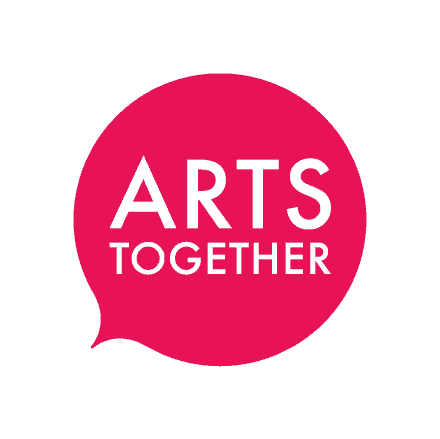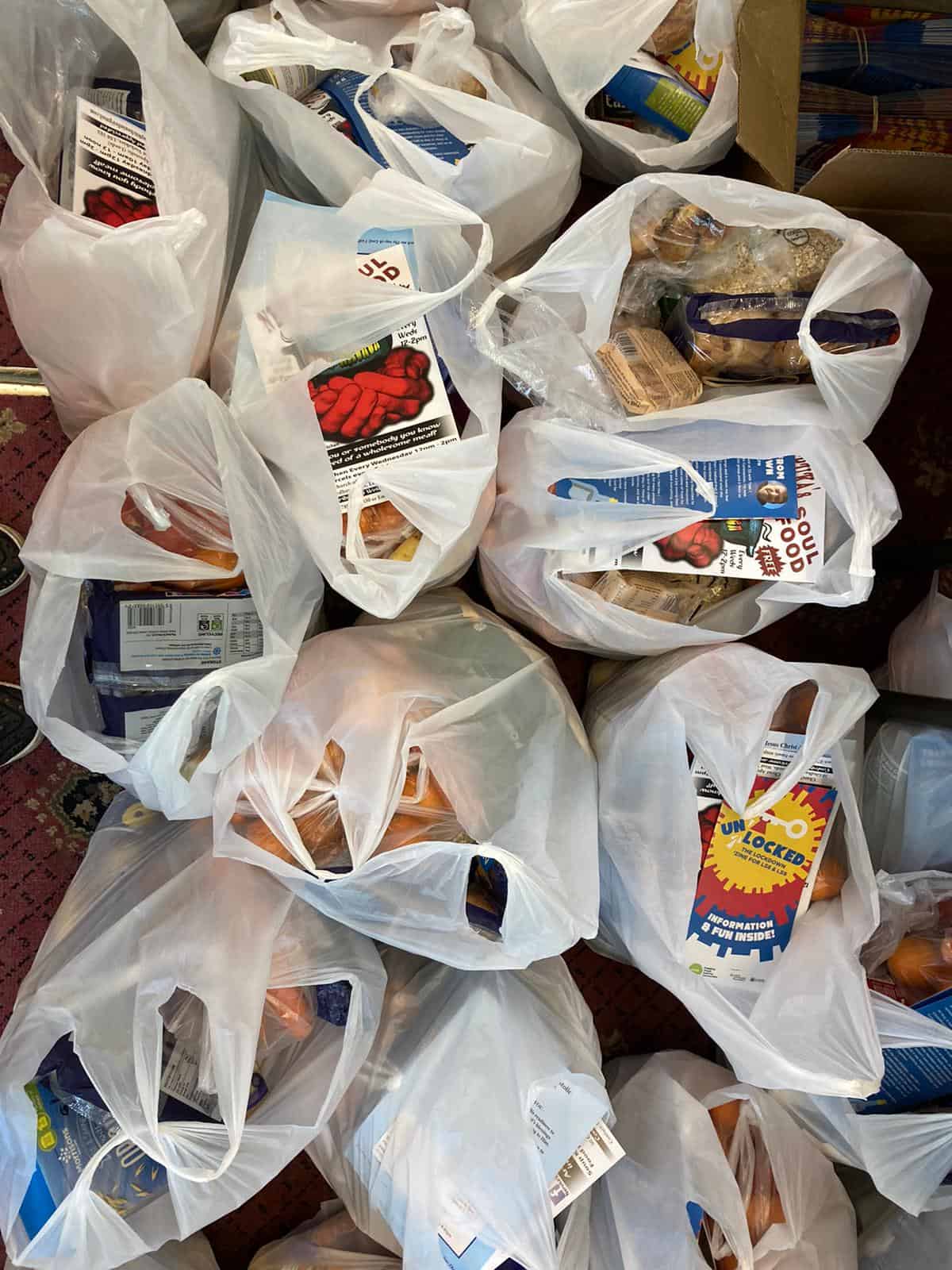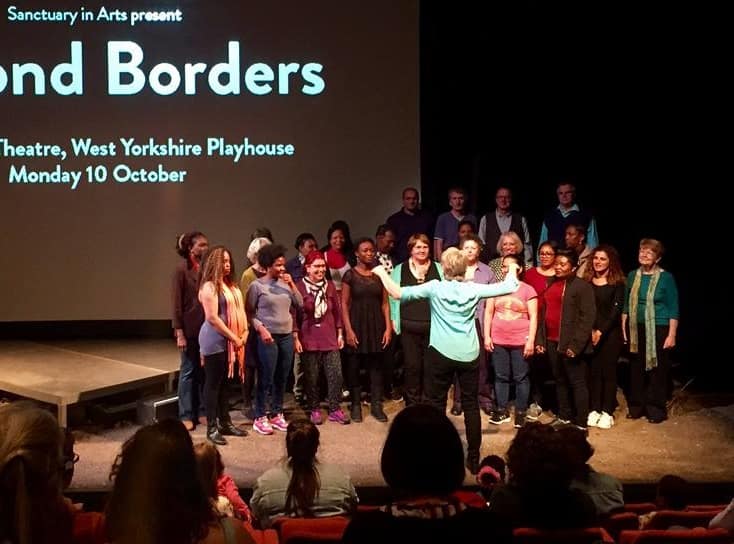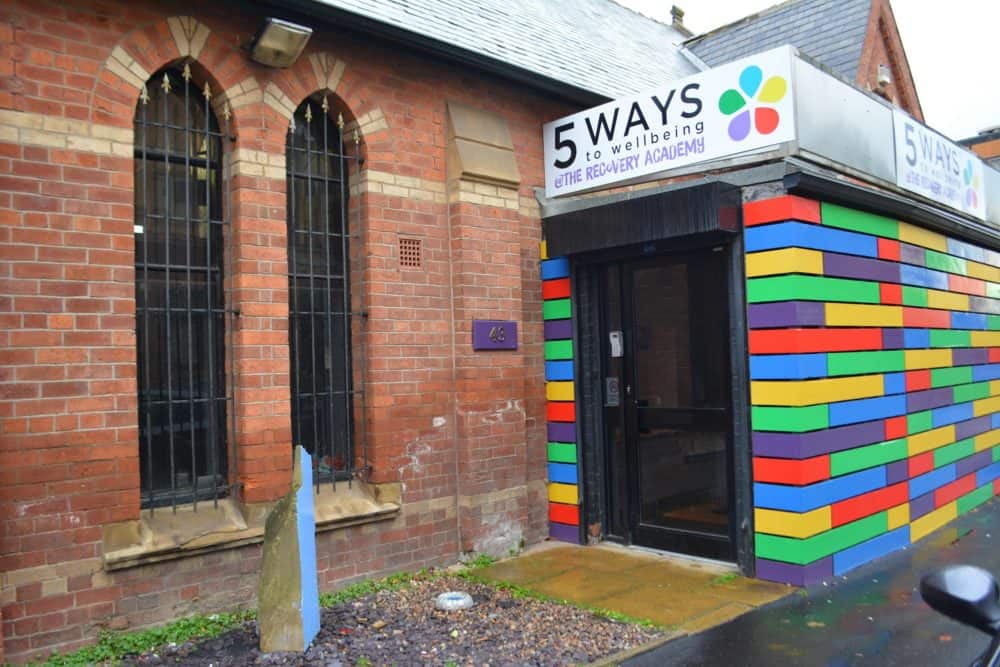Socially Connected Leeds: Stay at home and make – the story of a Leeds community arts network
Added: 01/06/2020
Forum Central
This post is part of a series of blogs sharing good news stories, positive practice and the range of innovative ways communities in Leeds are remaining connected through neighbourliness.
Hi, I’m Alice and I work for Opera North and am the coordinator of a collaborative network of community groups and arts organisations in Leeds called Arts Together, now in its second year of existence. When I asked the community groups to summarise what they had been up to during the lockdown in a few paragraphs or a phone call, I heard a story of immense ingenuity and creativity in difficult times. A story of how people are uncovering new ways of working and connecting that will last long after the lockdown.
An enormous challenge had suddenly been laid down: everyone must stay at home – and yet the people who use community services were potentially in greater need than ever. That may be because of isolation, particularly for older people or vulnerable groups, or through the lack of availability of essential free services which provided food, activities and exercise, as well as company. So the first hurdle was how to actually communicate with people now that meeting face to face was no longer an option… and the obvious step was to embrace technology. Which they all did.
Keeping in touch
Zoom and Facebook Live have been the most popular methods of keeping in touch with groups, as with most of us during this time. BIASAN (Bradford Immigration and Asylum Seekers Support and Advice Network) for instance are offering their English classes to Refugee and Asylum Seekers over Zoom with up to five in a class so they still get some social interaction. The DJ School have started one-to-one DJ coaching sessions to young people they work with. And Fall Into Place Theatre have continued their drama group sessions with children over Zoom, albeit with sometimes challenging side-effects – on one occasion the internet connection to the host dropped, so the hosting was automatically re-assigned to a member of the group, who was five years old! So the next few minutes were spent trying to find out who had it and getting it back!
5Ways are using Zoom to have daily check-ins with their clients and hold quizzes. Shabana and Aulson from Feel Good Factor relaunched a digital version of their hugely popular Saturday Social Group, and their first session of fun games and quizzes apparently went down an absolute storm. Leeds Combined Arts will be hosting their monthly poetry reading evening, and Cloth Cat’s popular open-mic sessions are continuing on Thursday evenings, both on Zoom. And Inkwell still run their Secret Cinema nights, but they post the film of choice online and then people all watch it at the same time and chat about it online. They also still run a Virtual Café! You make yourself a cuppa and get a biscuit and then log on to Zoom for a chat.
Keeping people fit
Fareen told me that the Association of Blind Asians have been offering Zoom classes three days a week showing simple exercises you can do from your chair, meditation, and stretches – thing perfectly adapted to the needs of their users. And although they had initial difficulties with the technology for some service-users, after a bit of help and support, lots of people now really enjoy the daily interaction.
Keeping people fed
An important priority for many groups at the start was delivering food parcels or hot food to people really in need. This was particularly the case for many groups who would ordinarily have provided a meal for their group members when they held their meetings. Leeds Irish Health and Homes were helping with this at the start along with helping with shopping but have seen the need lessen and have passed on people’s details to council run services. They still keep up with their ‘Craic Packs’ however, which are simple packs of Irish tea, biscuits, jam and other goodies, which are sent to people who may have been bereaved or are in real need of a pick-me-up.
Keeping people occupied
One area that most groups are having to deal with is that of boredom. Some individuals or families they support don’t have access to outdoor space, or have only limited TV or internet access, so are really lacking in things to do. Mafwa Theatre recognised this and designed some resource packs for the Refugee and Asylum seekers they work with which include a recipe, a £5 supermarket voucher and some creative activities to do, along with a stamped addressed envelope so people can send back their own recipes, examples of their creativity, or a letter to send to someone else.
Fall Into Place Theatre also recognised that activities from home would be crucial, so as soon as the lockdown was announced, managed to secure 600 free cardboard boxes, then diverted funds from some activities that could no longer go ahead, and bought lots of craft supplies from Hobbycraft quickly before it closed. They have been sending age-specific craft boxes to the older people and children that they work with, with each box containing creative suggestions of what to do with the supplies in it. So for instance an older person might get supplies to make a lavender sachet with instructions on how to make it, along with other goodies.
BIASAN heard that Bloomin’ Buds Theatre Company were putting together creative packs from donations which included things like knitting supplies, beads, and embroidery materials, so have managed to get some of those for some of the people they work with, as well as linking up with another local initiative to supply activity books to people in need.
Keeping people posted
Another slightly more old-fashioned method of communication was print and post. A very impressive effort has been Feel Good Factor’s ‘zine ‘Unlocked’ from the Manbassador Project (in conjunction with Orion). They created and printed 2,000 copies of a newsletter packed full of useful info and fun things to do, as well as mental health tips and positive news, and then linked up with local businesses as well as food banks to get it out to people in need across Leeds – a great use of existing networks and services.
Another creative idea has been to connect people who have never met before via letters. Fall Into Place Theatre already had a pen-pal letter scheme from older people to children and vice versa. Sarah told me about one little boy who had written to an older person telling them his mum was working on the frontline as a keyworker, and the older woman wrote back enclosing an angel she’d knitted him which she said would be watching over his mum. Leeds Irish Health and Homes have also been passing on letters written from children to isolated older people and the other way around which has brought both great solace and enjoyment.
Keeping people learning
Creating and posting up videos has also been a vital way to continue to offer services. Inkwell have been posting up one video a week showing a different crafting activity. These consist of everything from making treehouses for houseplants (so beautiful!) to making a lampshade out of old projector slides. And Cloth Cat have created video tutorials for the Get Your Act Together music courses for young people, which include song-writing and sampling and reverb techniques.
Another group embracing video is Harmony Choir. Frances told me she had to quickly learn how to record a good quality video, add the captions and post it onto YouTube – things she wouldn’t have known how to do before. She posts a video a week of her singing the songs that they have sung together in the past, sometimes including harmonies and with captions. But she is also posting up new songs from peoples’ suggestions (the latest one is in Swahili), so it gives the choir something to learn and to look forward to singing together when they can meet again.
Learning for the future
As I heard about all these learning curves that group leaders have been on, I was aware that these skills will not be lost. And that in future, all the ways that this helps groups to connect can carry on. And that they can help the most vulnerable in society. Some people find it difficult to get to group meetings – to travel to a specific location at a specific time, whether it be because of medical conditions, carer responsibilities, or a simple lack of funds for bus-fares. So in future, having online resources and group sessions will be a fantastic addition to community care.
One point that a few group leaders mentioned was that they worried about the people they didn’t hear back from – those people who didn’t join the Zoom session or post in the WhatsApp group. And here’s where a phone call proved essential. Mo from BIASAN said you have to just listen to people and let them tell you how they might or might not be coping. Margaret from Arts & Minds Culture Club says she helps people to reminisce about fun times they have had in the past, and they talk about places they’d like to go in the future. Shabana from Feel Good Factor has had a huge response to her phone befriending service offered via leaflets to people around Chapeltown. But several group leaders told me that when they got through to someone, it sometimes transpired that they were in fact overwhelmed by the various WhatsApp groups, Zoom meetings and calls from all the groups they accessed, so they were in fact fine and that it was OK for them not to respond to everything.
Leeds United
Many groups have collaborated and signposted people on to services. Fall Into Place realised there was a gap in the support available for adults, so worked together with the LS14 trust on a befriending service using volunteers in the Seacroft area to offer Chat and Check-in. And 5Ways signpost their service-users to local Leeds dance group Dazl’s brilliant dance and exercise videos online. And with the food deliveries or shopping support, many groups sign-posted their service-users on to councils or charities who were already efficient and organised with food supplies and volunteers.
And finally, some groups have managed to create opportunities for people to do things they may never have done before: Helen from 5Ways told me that a woman they’ve worked with has offered to start an online creative writing course with 5Ways members. At BIASAN, one of their volunteers has taken it upon himself to work on raising finances by contacting people for donations, and Frances from Harmony Choir posted choir-member Faustin’s brilliant lockdown re-mix of ‘I get knocked down’, re-jigged as ‘Leeds gets locked down’ on Twitter, and has had a ‘like’ from Boff Whalley, the original song-writer.
So given all the difficulties that many community organisations face at this time (working from home, perhaps in much smaller teams if staff are furloughed or unwell, and with different technology), and despite the fact that the people they work with may still be finding life very hard, the ways in which they have been creative and adventurous in supporting people, is inspiring. And what is exciting is that all these skills – using new technology, greater collaboration and creativity – will continue long after the lockdown, helping them to help communities in more ways than ever.
(Find out more about the Arts Together network here https://artstogetherleeds.co.uk/)
This post was written by
Alice Gilmour and Geraldine Montgomerie
Arts Together
Forum Central





